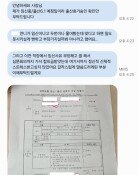Gov’t should push ahead with data deregulation
Gov’t should push ahead with data deregulation
Posted September. 04, 2018 07:31,
Updated September. 04, 2018 07:31
As expected, data deregulation initiatives released by President Moon Jae-in last Friday have hit a stumbling block. The ruling Democratic Party of Korea (DPK) called for the transfer of each ministry’s authority to regulate data to the Personal Information Protection Commission (PIPC) under the presidential office and turn the commission into an independent body to manage personal information. These have been demanded by some civic groups including the People’s Solidarity for Participatory Democracy calling for enhanced data protection. However, related ministries such as the Korea Communications Commission, the Ministry of the Interior and Safety, and the Financial Services Commission have opposed the move, putting the brakes on the plan.
This clearly shows why South Korea has not succeeded in cutting red tape thus far. No matter how strongly a president argues for innovation, politicians who are easily swayed by civic organizations and government officials obstinately sticking to regulations have stayed adamant. It has been a chronic malady in which they start to attach strings and drag down a plan when discussing the specifics, even though an agreement had been reached on the general idea of innovation through deregulation.
Big data contains personal information, and as much as it can be applied in endless ways in areas of finance, medicine, and public services, its protection is crucial. For this reason, President Moon made the generation of pseudonymized data be taken only by a state-designated specialized institute equipped with strict security facilities. Yet, South Korea ranked 56th out of 63 countries in the application and analysis of big data in a 2017 study by the International Institute for Management Development (IMD) in Switzerland. Thus, now is the time for the country to ease red tape to boost digital competitiveness by better utilizing data, which is considered the “crude oil for industries in the era of the fourth industrial revolution.”
Still, it is illogical that the ruling party first pushes for the expansion of the PIPC. The commission is only in charge of protecting personal information, so its purpose of establishment collides with data deregulation. The DPK cites the opposition of civic groups, but it is in fact the ruling party that has succumbed to some non-governmental organizations, which claim that deregulation plans lead the society to “surrender to a logic of capital.”
A social consensus has been already reached on a need for data deregulation through the Presidential Committee on the Fourth Industrial Revolution and the Special Committee on the Fourth Industrial Revolution under the National Assembly. What should now be done by the ruling party is to persuade opponents with the sense of responsibility. The presidential office of Cheong Wa Dae should exercise leadership to push ahead with deregulation plans. Should the plan of cutting red tape in the data industry fall apart amid meaningless arguments, just like bills on banking-commerce separation deregulation and the regulation free zone still pending at the parliament, we will not be able to find hope for deregulation in this country.
Headline News
- N. Korea launches cyberattacks on S. Korea's defense companies
- Major university hospital professors consider a day off each week
- Italy suffers from fiscal deficits from ‘Super Bonus’ scheme
- Inter Milan secures 20th Serie A title, surpassing AC Milan
- Ruling and opposition prioritize spending amid tax revenue shortfalls







